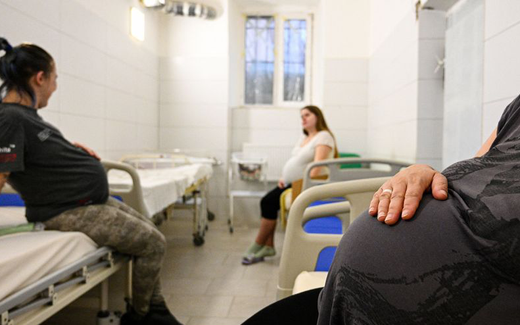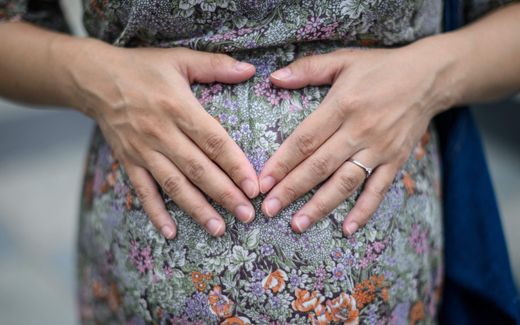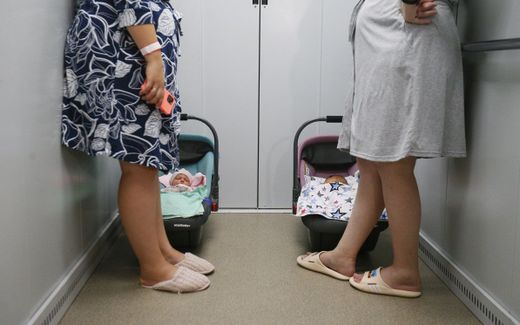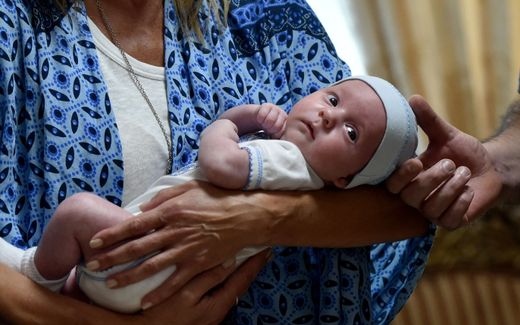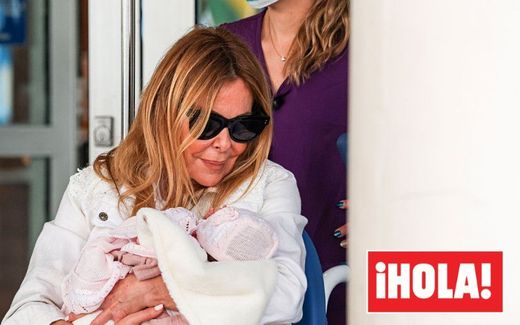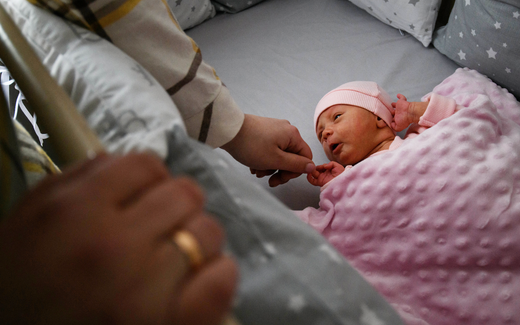Surrogacy expert slams proposed Dutch regulation, predicting increased demand
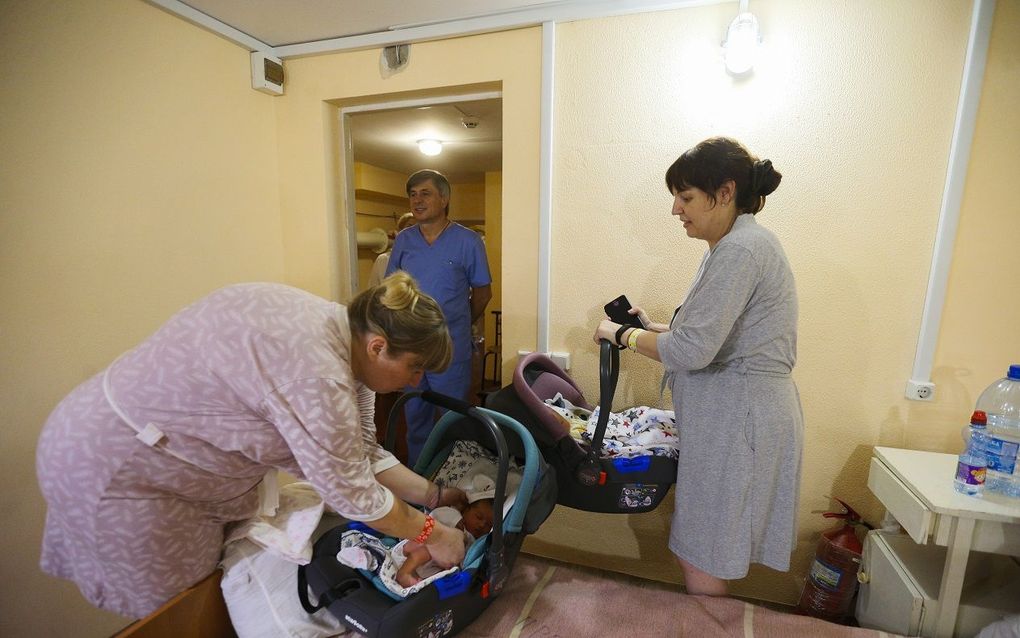
In a response to the Casablanca Declaration that calls for the universal abolition of surrogacy, the Dutch government removes ethical concerns from the debate by further regulating altruistic surrogacy. Photo EPA
Western Europe
Only one in 50 surrogate mothers has no financial interest. The other 49 women carry someone else’s child for commercial reasons. Yet, the Dutch government will draft legislation that allows altruistic surrogacy. “If you regulate the practice, it will spread massively.”
The Dutch Reformed SGP party is “somewhat baffled” by the government’s reaction to the Casablanca Declaration. In response to parliamentary questions from SGP MP Kees van der Staaij, the Dutch Minister for Legal Protection, Franc Weerwind, says that the declaration calling for the universal abolition of surrogacy underlines the importance of responsible surrogacy but does not change the government’s position.

In addition, the minister announces that he will send a bill to the Lower House around the summer to regulate altruistic surrogacy. Although commercial surrogacy, carrying babies for a profit, will be criminalised, altruistic surrogacy will still be legal in the Netherlands. The new law proposal should better protect the rights of the child, the surrogate mother and the intended parents, Weerwind says.
These answers result from parliamentary questions following a publication on CNE.news and in the Dutch Christian daily Reformatorisch Dagblad about the presentation of the Casablanca Declaration. In early March, dozens of experts called for the universal abolition of surrogacy. According to them, surrogacy harms women’s and children’s rights. A global ban is the only way to prevent the circumvention of national borders and laws.
Stunned
The Christian party, which holds three seats in the 150-seat parliament, is stunned by the government’s response. “Despite this widely signed declaration, the government is moving ahead with this legislation”, says Van der Staaij's spokesperson, who signals a pattern. “The cabinet is applying the same line of argument as with abortion and prostitution: it is better to regulate it properly than to prevent worse.”
According to the Casablanca signatories, surrogacy limits the rights of women and children. Minister Weerwind disagrees with this, however. He says things can go well “as long as certain standards of carefulness are met.” Weerwind refers to the Joustra Committee, which investigated inter-country adoption and also mentioned surrogacy. According to Weerwind, the committee set a standard for responsible surrogacy practices.
However, the SGP disagrees with the minister’s interpretation of the committee’s report. “The Joustra Committee does not allow for careful regulation of surrogacy because the child’s best interests are not central there in any case.”
Loophole
People behind the Casablanca Declaration are also critical of Minister Weerwind’s answers. “When you regulate surrogacy, you admit it”, says Carmen Lázaro, a Spanish Professor of Law at the International University of Catalonia in Barcelona. “It will start with altruistic surrogacy and end up accepting it all. Clinics and middlemen are waiting for a legal loophole in the legislation to sneak in and spread massively.”

Altruistic surrogacy, the selfless carrying of a child for another person, constitutes only a tiny proportion of the total number of surrogacy arrangements, says Lázaro, quoting a 2018 study. “Less than two per cent of surrogacy arrangements worldwide are altruistic. Will the Dutch government further regulate surrogacy for that small minority? And what happens to the other 98 per cent of cases?”
Moreover, Lázaro wonders how the government wants to control transactions for altruistic surrogacy. Although altruistic surrogacy is, in theory, disinterested, intended parents can cover the expenses of a surrogate mother.
In the new legislation, the Dutch government wants to add “incentives” for intended parents who choose a foreign route in the hope that they will select surrogacy that meets “certain standards of care.” That way, commercial surrogacy abroad would still be possible and recognised by the Dutch state.
Shopping
The Dutch government thus intends to handle surrogacy responsibly. But that is not possible at all, according to Professor Lázaro. “Paediatricians call the separation between the newborn and the surrogate mother “the first mourning” because the child perceives the same as if his mother had died during childbirth.”
To make his point on responsible surrogacy, the minister, in answering parliamentary questions, refers to several bodies dealing with surrogacy legislation. Weerwind mentions, among others, the Hague Conference on Private International Law, which currently works on a proposal for surrogacy legislation.
Furthermore, the Dutch government says to follow the work of the International Social Service (ISS). In 2021, this NGO published the so-called Verona Principles. These principles form guidelines for “responsible surrogacy”. However, these principles have never been ratified by any international institution, and, according to critics, the question of whether surrogacy is desirable at all has never been raised at ISS. The Dutch government, however, says it supports these guidelines.

According to Lázaro, Weerwind is shopping selectively in his referrals. “Why does the minister not also invoke the European Parliament’s 2015 annual report, in which it condemns surrogacy? And in 2016, the Council of Europe rejected the proposal that sought to open the door to regulating surrogacy in European countries.”
Adoption
Like the Joustra Committee, the Dutch government compares surrogacy to international adoption. That is a huge mistake, Lázaro believes. “Surrogacy and international adoption are two opposing figures. In adoption, there is already a helpless child. In surrogacy, you create one.”
The SGP also attacks this comparison. “In inter-country adoption, a home is sought for children who would otherwise have a deprived future in the country of origin”, says the spokesperson. “In surrogacy, there is a desire for children by mostly Western parents. Here, the interests of both the child and the mother are secondary to those of the intended parents.”
Pro-life
The SGP expects the law proposal to receive the support of a majority of the House of Representatives. “However, the Joustra Committee’s report will make the Chamber more critical.”
For the SGP, minister Weerwind’s answers provide handles for further dialogue. “The bill is a good opportunity to address surrogacy in general. This proposal also fits into a broader discussion on social engineering, something the SGP has always opposed.”
For the Dutch party, the Casablanca Declaration supports the party's current position. “When experts from 76 different countries all agree that surrogacy is a violation of human rights, we as a party see in it a confirmation of the dangers of surrogacy. You cannot be pro-life and in favour of surrogacy. And in surrogacy, the interests of both the mother and the child are secondary.”
Related Articles


